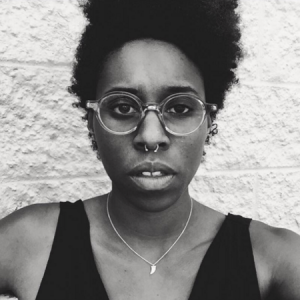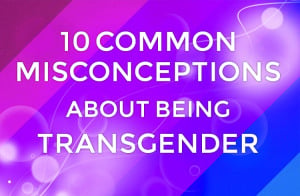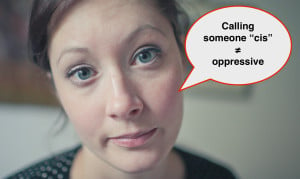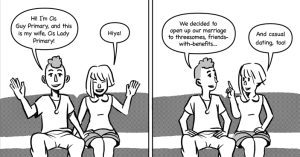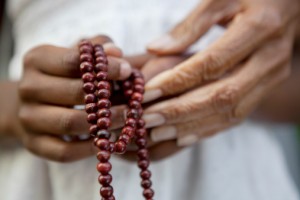
Source: Getty Images
As feminists, we regularly traffic in the potentially offensive.
From our decision to wear the label feminist to our rejection of patriarchal norms and traditional gender roles, we piss a good number of people off, oftentimes just by simply being ourselves.
To that end, feminists who are critical of religion sometimes express it in a way that can be shocking, offensive, or off-putting to religious people, including other feminists.
Good.
We need to talk about the (at times negative) impact religion has on our culture and ideas of gender, even if that means we have to touch a touchy subject.
However, I think that any and all open criticism of religion needs to be handled with care because religion is so intertwined with culture and ethnic identity.
Patricia Valoy wrote about the relationship between feminism and religion in an earlier article, noting that feminist discourse shouldn’t try to silence religious women’s voices. After all, we’re fighting patriarchy, which would exist even if everyone dropped religion right now.
But religion influences culture, which influences religion, which influences culture.
Therefore, there will always be valid feminist criticisms of religion. And that’s okay.
So the following are things I propose should be kept in mind when delivering these criticisms.
1. Religion Gets Racialized
Hindu, Muslim, Buddhist, Sikh.
These religious identities have been racialized and regionalized both through their historical movement and the media’s oversimplification of them.
So when feminists criticize a religion that’s been heavily racialized or othered, they need to be careful not to stumble into stereotyping and racial caricature while doing so.
Take, for example, the “Topless Jihad” rallies organized by FEMEN in April.
The Ukraine-based feminist organization started the rallies in support of Tunisian activist Amina Tyler, who bared her breasts in protest and went into hiding after receiving threats of lashing and death.
Though well-meaning and right to confront the violence and sexism that forced Tyler into hiding, some FEMEN activists inadvertently dabbled in racial stereotyping and implications of white savior-hood of Muslim women. This led to a backlash from Muslimah feminists who felt that their choices of religion and clothing had been misunderstood and attacked by FEMEN.
Though the total implications of the FEMEN rallies are more complex than I can do justice to here, the point I’m making is that predominantly white feminist groups taking aim at oppression in racialized religions can run into unfortunate implications.
The implication that liberated white or Western women must speak on behalf of oppressed brown women, whether intentional or not, has been a part of feminism’s history since the movement as we know it started.
And it’s disingenuous to send a message of women’s liberation while perpetuating racial stereotypes, which religious protests should be mindful of.
2. Know What You’re Criticizing
If I hadn’t read the Bible cover to cover, I probably wouldn’t have become an atheist.
There’s really nothing like reading Genesis and doing the math to figure out the age of humanity according to the Bible, and that kind of nerdish childhood study allows me to understand Christianity better than I will any other religion. So that story about how Sodom and Gomorrah was destroyed because of homosexuality? Heard it when I was six.
However, there needs to be some pause when criticizing a religion one is less familiar with.
Even if that religion has clear issues with some form of discrimination, trying to throw a couple of damning verses at it in an attempt at criticism is hardly effective.
The religious texts themselves are only the tip of the iceberg in a religion.
Though they form some basis for people’s faith, the ritual life in which people pray, interact with their communities, and function within their societies forms an understanding of the religion that outsiders don’t really understand.
This is all to say that some of the best critics of religion are either members of that religion who can see its faults, former members of the religion, or people who have seriously studied the religion.
Criticizing a religion from a place of ignorance only serves to make feminists look arrogant and dogmatic.
3. The Religion Doesn’t Speak for All of Its Members
Whatever the Pope may say about women, his words do not reflect the attitudes of individual Catholics.
Similarly, there are religions with sexist, homophobic, and racist stances and histories, but the followers vary from staunch fundamentalist to fully liberal.
No religion is uniform or static.
There are Catholics who choose birth control, Christians who support marriage equality, women ministers in patriarchal churches, and so on.
Even if it could be argued that such people are deviating from the scripture, the scripture is only one part of several that make up a person’s faith.
This is good to remember before making sweeping statements about certain religions or their members.
Saying that “Christianity is homophobic,” for instance, can exacerbate the conflict gay Christians have with reconciling their faith and sexuality.
4. Knowing When to Say Something
Some occasions are better than others when it comes to voicing an opinion on religion, positive or negative.
A feminist who relies on her faith in Jesus to fight daily battles with depression probably doesn’t need to hear about the inconsistencies you found in the New Testament all the time.
There are also those smart, thoughtful, reasoned folks who just so happen to be religious and don’t need to hear a rehash of their scripture in critical form.
The people who need to hear feminist criticisms of religion are bigots, abusers, and thieves who hide behind robes, rituals, and scripture to justify their actions.
They are the people who want to set limits on marriage, access to birth control, and access to safe and legal abortions based on their own personal beliefs.
And those are the people who we should stand up to.
People who are actively hurting others using religion or the façade of religion need to be told that human rights in general shouldn’t be dictated by their personal beliefs.
***
This is not an article telling you to use kid gloves around issues of religion.
Rather, it’s a reminder to give a damn about how other’s feel while remaining skeptical, critical, and humble enough to see the flaws in our society for what they are.
Because they’re there.
But the ways that we choose to point out those flaws can be flawed as well.
[do_widget id=”text-101″]
Jarune Uwujaren is a Contributing Writer for Everyday Feminism. A Nigerian-American recent graduate who’s stumbling towards a career in writing, Jarune can currently be found drifting around the DC metro area with a phone or a laptop nearby. When not writing for fun or profit, Jarune enjoys food, fresh air, good books, drawing, poetry, and sci-fi. Read their articles here.
Search our 3000+ articles!
Read our articles about:
Our online racial justice training
Used by hundreds of universities, non-profits, and businesses.
Click to learn more






